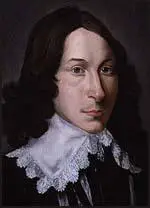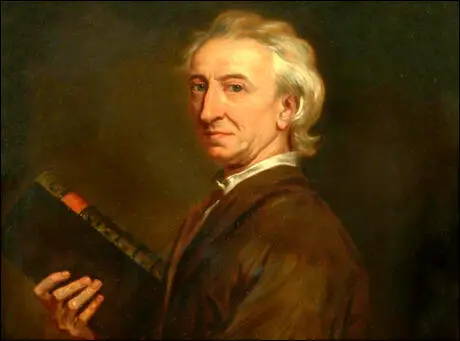John Evelyn

John Evelyn was born in Wotton, Surrey, on 31st October 1620. He spent most of his early life in Lewes, Sussex. After being educated at Balliol College, Oxford, he spent several years travelling in Europe.
Evelyn was a supporter of Charles I and after his execution in 1649 he went into exile. He returned in 1652 and eventually became a fellow of the Royal Society. A royalist, Evelyn described the return of Charles II to London: There were 20,000 soldiers... shouting with joy; the streets covered with flowers, the bells ringing, fountains running with wine."
After the Restoration Evelyn joined the royal court of the king. On 17th October 1660 he described the executions of some of the leaders of the Commonwealth: "The traitors executed were Scroop, Cook and Jones. I did not see their execution, but met their quarters mangled and cut and reeking as they were brought from the gallows in baskets."

In 1661 he published a book on pollution, The Inconvenience of the Air and Smoke of London Dissipated. This was followed by A Disclosure of Forest Trees (1664). After the Great Fire of London in 1666 Evelyn submitted proposals for the rebuilding of the capital. He also published Navigation and Commerce (1674). On the death of Charles II: "He (Charles II) was a prince of many virtues, and many great imperfections. He would doubtless have been an excellent prince had he been less addicted to women. He had many great faults... He neglected the needs of the people... Wars, plagues, fires made his reign very troublesome and unprosperous."
John Evelyn died on 27th February 1706. His diaries covering the years 1641-1706 were found in an old clothes-basket in 1817 and provide vivid portraits of public figures of the period.
Primary Sources
(1) John Evelyn, diary (11th June, 1652)
The weather being hot, and having sent my man on before, I rode negligently under favour of the shade, till within three miles of Bromley, at a place called Procession Oak, two cut-throats started out, and striking with long staves at the horse and taking hold of the reins threw me down, took my sword, and haled me into a deep thicket some quarter of a mile from the highway, where they did might securely rob me, as they soon did. What they got of money was not considerable, but they took two rings, the one an emerald with diamonds, the other an onyx, and a pair of buckles set with rubies and diamonds, which were of value, and after all bound my hands behind me, and my feet, having before pulled off my boots; they then set me up against an oak, with the most bloody threats to cut my throat if I offered to cry out or make any noise.
(2) In his diary John Evelyn described Charles II entering London in May 1660.
There were 20,000 soldiers... shouting with joy; the streets covered with flowers, the bells ringing, fountains running with wine.
(3) John Evelyn, diary entry (17 October, 1660)
The traitors executed were Scroop, Cook and Jones. I did not see their execution, but met their quarters mangled and cut and reeking as they were brought from the gallows in baskets.
(4) John Evelyn, diary entry (28th March, 1667)
The Royal Society experimented with the transfusion of blood. They took blood successfully out of a sheep and put it into a dog. The sheep died but the dog is well.
(5) John Evelyn, diary entry (4th February, 1685)
He (Charles II) was a prince of many virtues, and many great imperfections. He would doubtless have been an excellent prince had he been less addicted to women. He had many great faults... He neglected the needs of the people... Wars, plagues, fires made his reign very troublesome and unprosperous.

